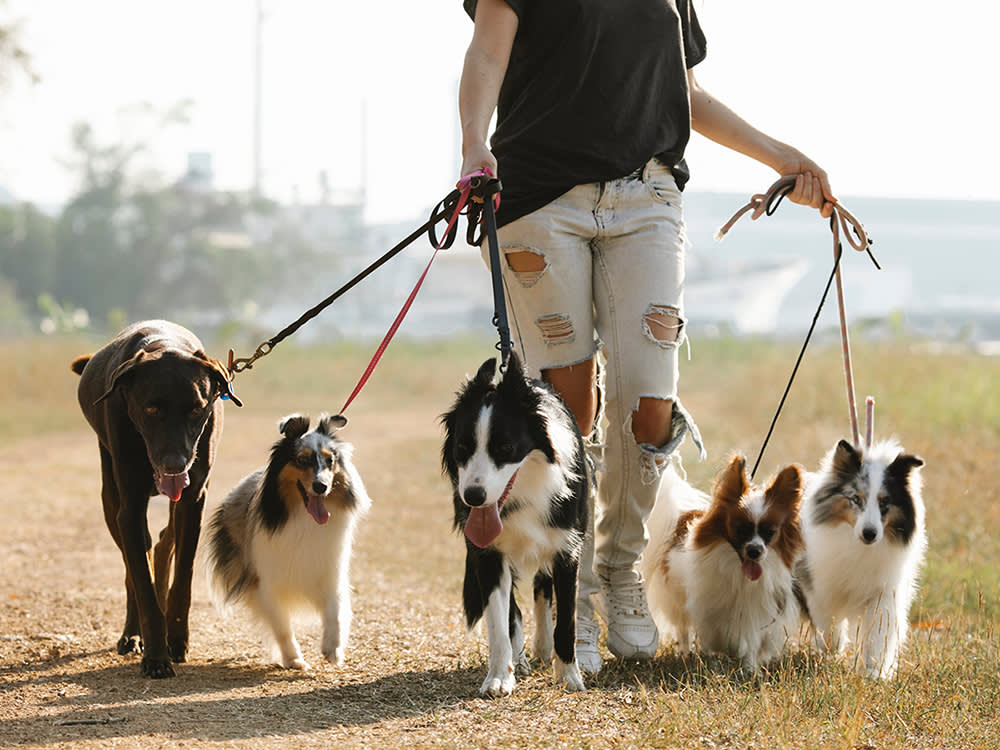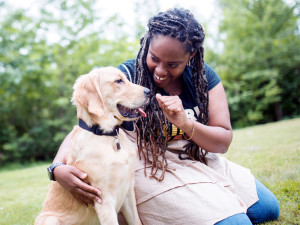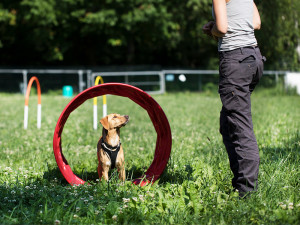Breed Does Not Equal Behaviour
A study found that a dog’s breed accounts for less than 10 percent of their behaviour

share article
We’ve all heard the stereotypes like Yorkies are yappy, Pit Bulls are aggressive, or Chihuahuas love tacosopens in a new tab. While most pet parents of these breeds agree the labels are far off-base, they persist nonetheless. However, a study is hoping to curb some of that thinking. The journal Scienceopens in a new tab published findings in 2022 that upend many of these behavioural misnomers.
The community science project Darwin’s Arkopens in a new tab was responsible for much of the data. Researchers examined a compilation of owner surveys, providing info on over 18,000 dogs, as well as sequencing the genomes of nearly 2,200 of them. “Dogs are a natural system for investigating the genetics of complex traits. Millions of pet dogs live in human homes, sharing our environment, and receive sophisticated medical care,” reads the study, which was co-authored by 25 scientists. “Behavioural disorders are treated with human psychiatric drugs, achieving similar response rates, and genetic studies suggest shared etiology with some human psychiatric conditions.”
Ultimately, the team found that as little as nine percent of a dog’s behaviour can be attributed to their breed. So what factors impact a dog’s behaviour on a more tangible level? “Early socialisation, exposure to novelty, training from the get-go,” says Robert Haussmann, certified dog trainer and founder of Dogboy NYCopens in a new tab. “True, clear and fair leadership – not punishment or alpha dogging – to give a dog clear information about the world that it lives in. That all plays a big role.”
It’s important to note that the study was primarily focused on behaviour in relation to a dog’s reactions to something they find new or strange – essentially, their level of aggression, which is a dangerous categorisation that can result in misjudged breeds becoming less likely to be adopted. Unfortunately, harmful ideas have a tendency to reinforce themselves and snowball.
“Pitbulls in a lot of cities – and I can speak for New York – make up a ton of dogs in our shelter system,” Haussmann explains. “What’s that dog’s early life and socialisation? A huge percentage of these dogs could be and should be loving family members.” Of course, according to the study, Pit Bulls did prove to be one of the more human sociable pups – news to no one who’s ever met one. Haussmann also points towards irresponsible breeding as a catalyst for this lingering issue, something Darwin’s Ark notes.
Modern breeds have a history of about 160 years, whereas their evolutionary origin may date back over 10,000 years. And only in the last century and a half have they been primarily bredopens in a new tab for appearance rather than functional roles such as hunting, guarding and herding. The dedication in some circles to purebred breeding has only escalated this deviation, but even then behaviour is not predetermined – as 49 percent of the dogs cataloged in the survey were purebred.
Now, this might sound a bit contradictory given the last 500ish words, but the data did confirm that a dog’s heritage can play a role in their behaviour. The researchers found that around 25 percent of behavioural traits are inherited and according to our expert, that tracks. “That’s how genetics, in general, work. And I think specifically in the world of dogs with their flexible genome, that’s even more inclined,” says Haussmann.
When you think about all the benefits of testing a dog’s DNA, we know that can be a positive resource. Certain breeds may be more susceptible to allergens or diseases and with that information, we can help prevent them or prepare the best treatment early on.
However, there is one last significant factor to ponder regarding this study. Similar to how you react when hearing your aunt boast about some politician secretly being a lizard person, we have to consider the source. Given most of the information the researchers were working off of is based on survey questions and pet owner testimonials, the data may not be entirely reliable.
With that, how should we feel about these findings? According to Haussmann, “What I’d take away from this study reinforced my own observations, which is any dog, regardless of breed, can be fearful, aggressive, anxious, overzealous, stubborn… whatever behaviour you’re seeing, it could be a problem with any dog, any breed, any age, any size.” In other words, don’t judge all dogs of a breed based on the actions of one.

Sean Zucker
Sean Zucker is a writer whose work has been featured in Points In Case, The Daily Drunk, Posty, and WellWell. He has an adopted Pit Bull named Banshee whose work has been featured on the kitchen floor and whose behavioral issues rival his own.
Related articles
![kneeling woman with braids training her golden retriever]() opens in a new tab
opens in a new tabHow to Find the Right Trainer, No Matter What Your Dog’s Been Through
With so many dog trainers out there that it can be hard to know who you can actually trust (especially if your dog has trust issues of their own), here’s where to start…
![A puppy practicing obstacle training courses with owner.]() opens in a new tab
opens in a new tab5 Reasons to Start Agility Training With Your Puppy
Learn how to better communicate with your puppy through agility training
![A woman cleaning up pee on the wood floors inside while disciplining a grey puppy with a raised finger of disapproval]() opens in a new tab
opens in a new tab10 Dog Training Habits You Should Drop Right Now
Training a dog can seem pretty intuitive – until it’s not
![A man with long brown hair playing tug -of-war with his Golden Retriever dog outside on a wet tennis court]() opens in a new tab
opens in a new tabPlay-Training Can Be Your Solution to Dog Aggression
Behaviour correction, Mary Poppins style: turn a job into a game
![Three dogs on leashes meeting and sniffing each other on a walk on the summer grass with owners]()
How Do I Get My Shy Dog To Socialise?
Dog trainer Robert Haussmann’s tips for getting a shy pup to go from wallflower to social butterfly







